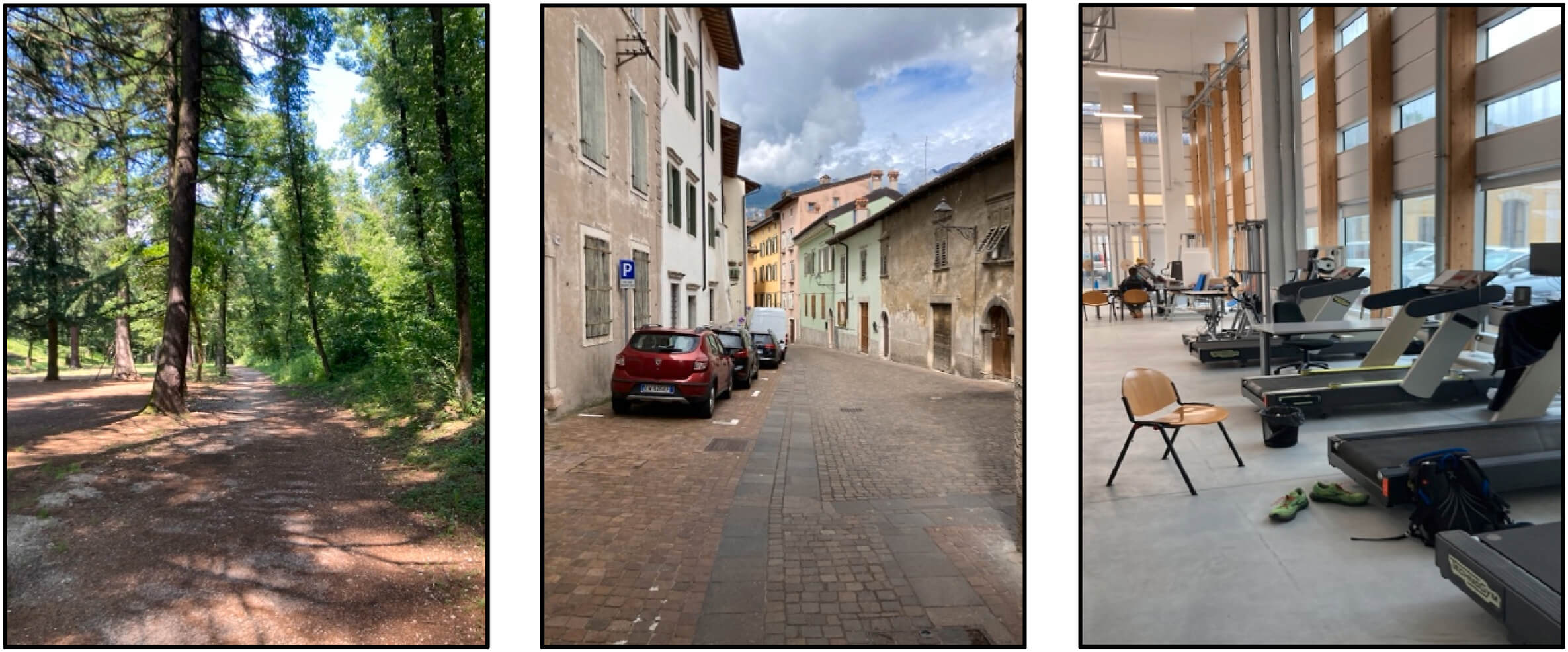Exercising in nature is superior to exercising in the city or at the gym
Exercising in green surroundings improves mood, reduces stress levels, and improves heart rate compared to exercising in the city or indoors. This is shown by new research from the University of Copenhagen. The study provides new insights that can be used to improve public health.

An hour of brisk walking in the forest, on the beach, or in a green park reduces stress hormones, improves mood, and makes exercise easier to enjoy. This is shown by a new study from researchers at the University of Copenhagen and the University of Verona.
Twenty-five young men participated in the experiment, in which they had to walk at the same pace in three different environments: a natural area, an urban route, and an indoor fitness environment. After each walk, their mood, stress levels, and physical exertion were measured—and the results were clear.
“The participants felt significantly more relaxed and had lower levels of the stress hormone cortisol after walking in nature. At the same time, they reported greater joy and less fatigue,” says Associate Professor Stefano De Dominicis from the Department of Nutrition, Exercise and Sports at the University of Copenhagen.
The study is among the first to combine physiological measurements with the participants' own experiences in green, urban, and indoor environments and examine the connection between the two.
“It is not new or surprising that nature is good for our health. But there has been a lack of research examining both the mental and physical effects of exercise in nature compared to the gym and the city. Our study shows that nature is superior to the other two environments in several areas,” says Associate Professor Stefano De Dominicis.
Our brain loves nature
The study clearly shows that exercise in nature provides far greater mental benefits than both urban and indoor environments. Participants rated nature as clearly the most recharging, and they experienced more positive emotions—such as joy, satisfaction, and optimism—than in both urban and indoor environments.
At the same time, negative emotions such as anxiety, irritation, and boredom were significantly lower in nature. For example, feelings of boredom increased after a walk indoors, while they decreased in nature. The experience of calm was also highest in nature, while it decreased most indoors.
“Humans were born in nature and we have undergone most of our evolution in it. Therefore, it is not surprising that we feel good when we are in it,” says Stefano De Dominicis.
Finally, the participants had a significantly greater desire to repeat the activity in nature, where the intention to continue was at a completely different level than in the city and indoors.
“The figures show that nature not only gives a short-term boost to mood—it also reduces negative feelings and increases motivation to continue being physically active,” says the researcher.

Use nature once a week
The physiological measurements supported the participants' experience of exercising in nature. Among other things, the researchers measured that the participants' heart rates dropped more quickly after a walk in nature.
At the same time, heart rate variability, which shows how well the body activates the parasympathetic nervous system that promotes calm and recovery, was 20-30 percent higher than during the indoor walk.
However, the researcher emphasizes that there are also many benefits to exercising indoors. For example, the social element of playing a team sport or small talk at the gym. However, he believes that it makes sense to incorporate outdoor exercise into your weekly exercise program.
“The mental and physical benefits seem to be significantly greater when exercising in nature, so people can benefit greatly from replacing just one of their weekly indoor workouts with 30 minutes of exercise in green surroundings,” he says.
Nature as a gym
The study "Evaluating the benefits of green exercise: A randomized controlled trial in natural and
built environments assessed for their restorative properties" was published in:
Psychology of Sport and Exercise, September 2025 [LINK]
Research design: Randomized crossover study with 25 young men
Environments studied: Natural environment (forest park), urban area (urban walking environment), indoors
(laboratory with treadmill)
Activity: 1 hour of walking at a moderate pace (6 km/h) in each environment
Measurements included: Psychological: stress, mood, joy, intention to repeat exercise
Physiological: heart rate, heart rate variability (HRV), cortisol level in saliva
Main results:
The natural environment provided the greatest sense of relaxation and well-being
Cortisol and heart rate decreased most in nature
Participants enjoyed exercise most in green spaces and felt less exhausted
Nature increased motivation to exercise again
Behind the research:
A collaboration between researchers from the University of Verona and the University of Copenhagen, among others
Funding: Supported by the EU's NextGenerationEU program and the iNEST initiative
May benefit public health more than we thought
The study also points out that the surroundings play a greater role in our motivation and recovery than previously assumed, as the participants' experience of exercise in the three environments is now backed up by physical measurements. This provides important new insights that the researchers hope will benefit both public health and future urban planning.
“We see great potential in using nature as a driving force for physical activity—especially for those who find it difficult to get started,” says Stefano De Dominicis from the University of Copenhagen.
The researchers recommend that municipalities and health professionals give greater consideration to green spaces in public health strategies and exercise programs for, for example, overweight people and people with mental health issues.
Contact
Stefano De Dominicis
Associate Professor
Department of Nutrition, Exercise and Sports
University of Copenhagen
sdd@nexs.ku.dk
Phone +45 35 32 60 16
Mobile: +45 41 43 99 99
Michael Skov Jensen
Press Officer
University of Copenhagen Communication
msje@adm.ku.dk
+45 93 56 58 97
